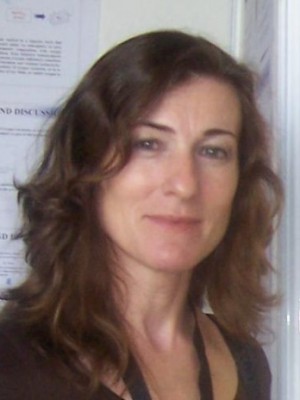abstract
Hydroxyapatite (Hap) is a calcium phosphate with a chemical formula that closely resembles that of the mineral constituents found in hard tissues, thereby explaining its natural biocompatibility and wide biomedical use. Nanostructured Hap materials appear to present a good performance in bone tissue applications because of their ability to mimic the dimensions of bone components. However, bone cell response to individual nanoparticles and/or nanoparticle aggregates lost from these materials is largely unknown and shows great variability. This work addresses the preparation and characterization of two different Hap nanoparticles and their interaction with osteoblastic cells. Hap particles were produced by a wet chemical synthesis (WCS) at 37 degrees C and by hydrothermal synthesis (HS) at 180 degrees C. As the ultimate in vivo applications require a sterilization step, the synthesized particles were characterized 'as prepared' and after sterilization (autoclaving, 120 degrees C, 20 min). WCS and HS particles differ in their morphological (size and shape) and physicochemical properties. The sterilization modified markedly the shape, size and aggregation state of WCS nanoparticles. Both particles were readily internalized by osteoblastic cells by endocytosis, and showed a low intracellular dissolution rate. Concentrations of WCS and HS particles less than 500 mu g ml(-1) did not affect cell proliferation, F-actin cytoskeleton organization and apoptosis rate and increased the gene expression of alkaline phosphatase and BMP-2. The two particles presented some differences in the elicited cell response. In conclusion, WCS and HS particles might exhibit an interesting profile for bone tissue applications. Results suggest the relevance of a proper particle characterization, and the interest of an individual nanoparticle targeted research.
keywords
POTASSIUM CITRATE SUPPLEMENTATION; CALCIUM-PHOSPHATE; BONE METABOLISM; HYDROTHERMAL SYNTHESIS; APATITE NANOCRYSTALS; POSTMENOPAUSAL WOMEN; SIZE; CARBONATE; CRYSTALS; ORTHOPHOSPHATES
subject category
Science & Technology - Other Topics
authors
Santos, C; Gomes, PS; Duarte, JA; Franke, RP; Almeida, MM; Costa, MEV; Fernandes, MH
our authors
Groups
G2 - Photonic, Electronic and Magnetic Materials
G5 - Biomimetic, Biological and Living Materials
acknowledgements
Faculdade de Medicina Dentaria, Universidade do Porto, Portugal; Department of Materials and Ceramic Engineering, CICECO, University of Aveiro, Portugal; CIAFEL, Faculdade de Desporto, Universidade do Porto, Portugal.



